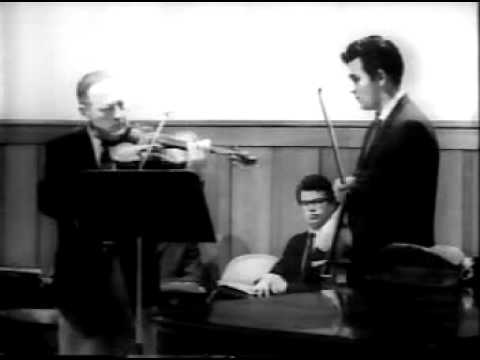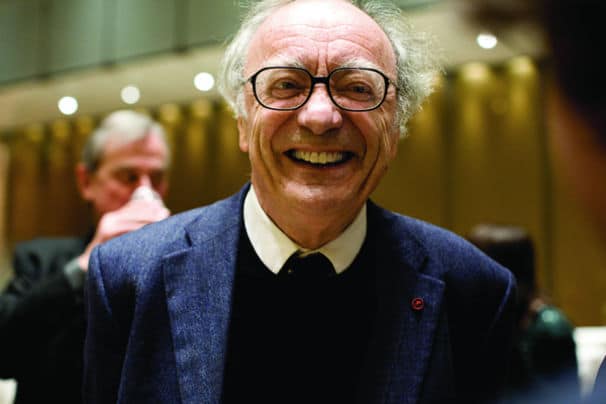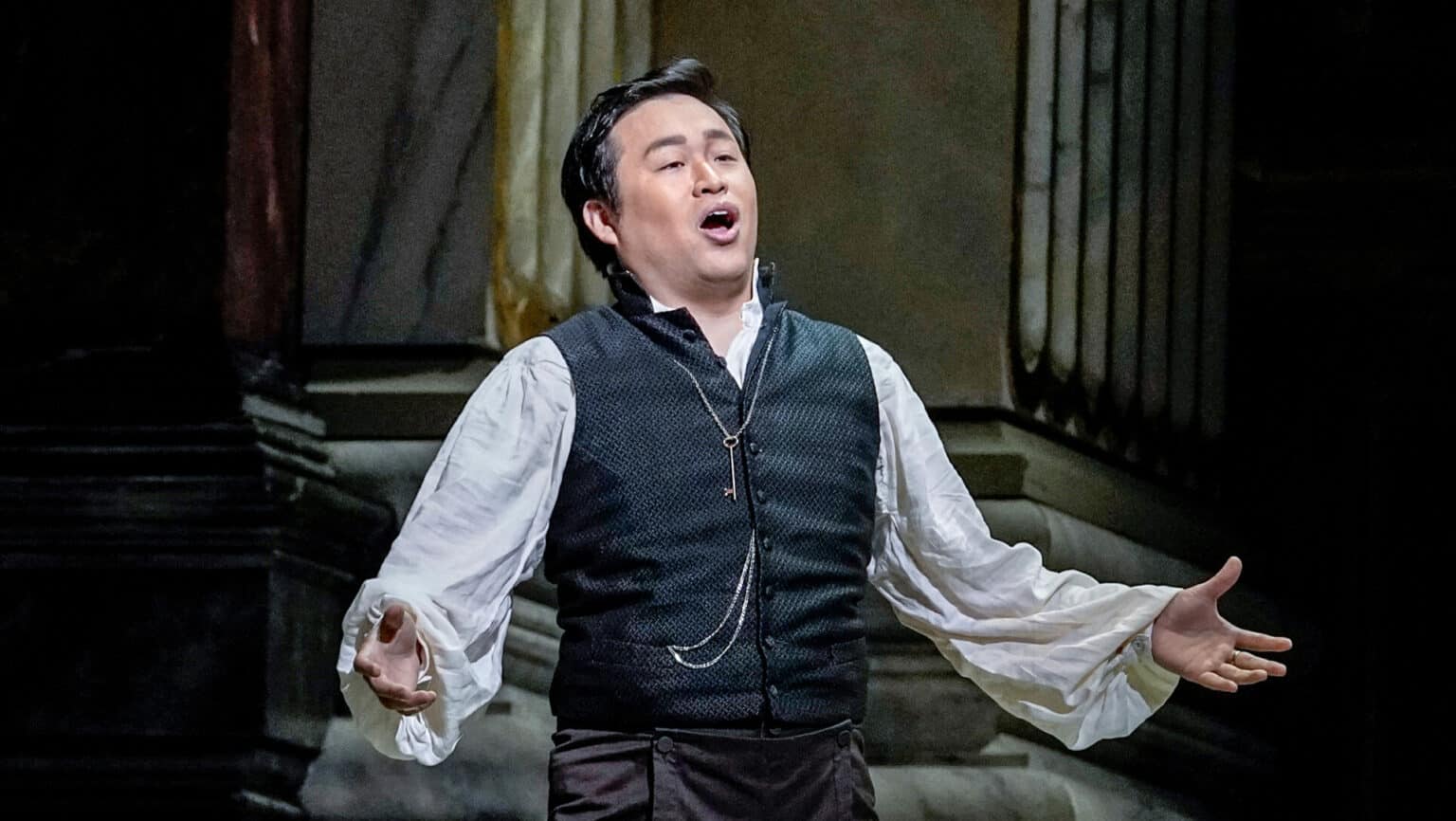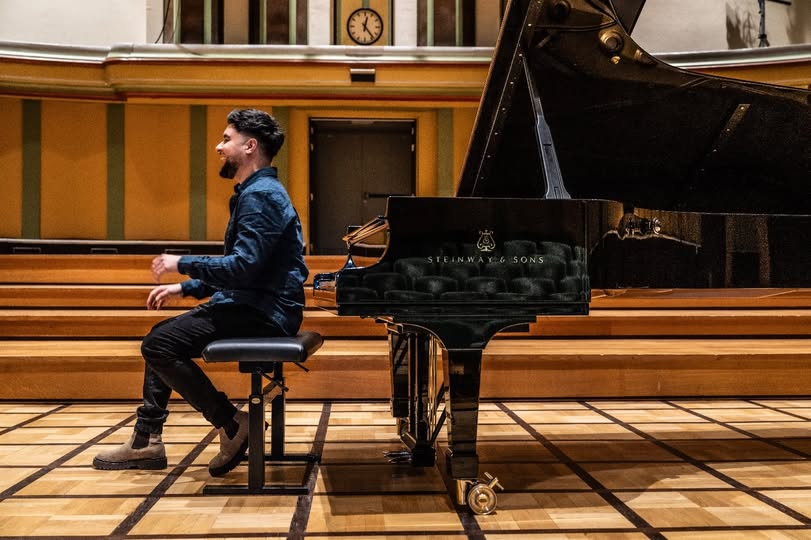The Slipped Disc daily comfort zone (218): When Bing sang for Jascha
mainRub your ears and believe.


Rub your ears and believe.

Arturo Benedetti Michelangeli, b. Brescia, January 5, 1920…

The death has been announced of Andrzej Klimczak,…

There has been a rush to repair the…

The Romanian migrant Ionut Cibotariu was working on…

Session expired
Please log in again. The login page will open in a new tab. After logging in you can close it and return to this page.
Ah, the distinctive and inimitable sound of Heifetz mingling with Crosby’s velvet voice. What nostalgia! Wonderful, thanks for sharing.
Lovely.
Perhaps some Boulez or Krenek for their next number?
Recorded on July 13, 1946. Here’s the flip side.
https://www.youtube.com/watch?v=HclgCQe_cNs
I recently suffered a health issue that resulted in memory problems… to recover I tried relearning some old piano music. I started with “Au Matin” by Godard, and thought “the only thing anyone knows by this composer is a lullaby from some opera.” Then this pops up…
Godard’s “Concerto Romantique” was quite popular years ago.
Originally recorded for US Decca during the time when Heifetz was having a tiff with RCA. There were two albums of encore pieces as well.
The tiff was over the musician’s union headed by James Petrillo calling a halt to recordings by their members due to a dispute over royalties (they made an exception for V discs for soldiers during WWII) in 1942, but American Decca broke ranks, settled with the union. Other labels recorded vocalists (not regarded as musicians by the union, and let’s not jump start THAT old dispute) and there was a sudden popularity for vocal groups providing the background to pop songs. There was also a sudden revival of pre-ban recordings where the singer, such as Frank Sinatra, was suddenly a big star. He was just Harry James’s band singer when All or Nothin At All had first been recorded with small sales but it was a huge hit during the ban.
Some say the primary effect of the ban was to kill off big band music, so in that sense you could argue it was counter productive to the union. It also introduced American listeners to some British bands (and their singers) which and who of course were not affected by the ban.
RCA did not capitulate for a long time (I think it was because their Boston Symphony was non-union) and Heifetz found himself making no recordings. Heifetz switched to Decca in 1944 because he could record with good pianists such as Milton Kaye. The American Decca recordings were almost entirely encore type repertoire including his Gershwin transcriptions. He also recorded a gooey version of “White Christmas” with the Camarata Orchestra. Decca issued two LPs worth of its Heifetz stuff in the 1950s, and MCA issued them on CD early in the CD era. Not to be missed among the Heifetz Decca recordings are two works by the American composer Cecil Burleigh: Giant Hills, and a Moto Perpetuo that is jaw dropping. Indeed there are several works Heifetz waxed for Decca that he never remade for RCA Victor, many decidedly on the “semi-classical” or light side of the repertoire, perhaps popular items he had played for soldiers during the War. Eventually of course Heifetz’s loyalty to Decca no longer served his purposes (or Decca’s) since it was evident they were not going to record him in concertos and major sonatas, so he returned to the fold and I imagine the RCA Victor fatted calf was slaughtered in celebration.
The combination with Crosby is not as strange as it might seem. Bing Crosby had Heifetz as a guest on his radio show and I believe there are broadcast transfers of some songs they did together. Bing also recorded one of Heifetz’s efforts at popular song writing under the name Jim Hoyle (which was the name Heifetz often used to make hotel reservations). The song “When you make love to me, don’t make believe” was covered and recorded by some other singers, and Heifetz himself made a nice solo piano recording of it (he was by all accounts a highly accomplished pianist). It’s not a bad song at all and I am surprised it has not been revived.
The other American Decca item recorded by Crosby and Heifetz is “Where My Caravan Has Rested,” a sort of parlor song, not really a pop song, so in that sense I suppose you could argue that Crosby was wandering in Heifetz territory, not Heifetz in Bing Crosby territory, for both recordings. Crosby did not have anything like a trained voice, but it had some power and decades later David Bowie remembered that during their (unusual) Christmas TV special he was struck by how loud Crosby’s voice was compared to his own. If you listen to these items with Heifetz over good speakers, you can hear the genuine “boom” in Crosby’s low voice.
Dear David,
This is a great post, full of interesting information, some of which I had not read before.
PLEASE write a book!
– regards, Greg
Beautiful.Thank you.
It is hard to imagine that JH was even capable of playing with such wobbly and unsteady pitch, no matter how little rehearsed, so it is probably an imperfection of this recording’s quality.
I had no idea Bing Crosby’s voice was that good.
Lovely combination.
However, not particularly surprising, given Bing’s wide range of singing ability.
John Allan
President, Australian Bing Crosby Society.